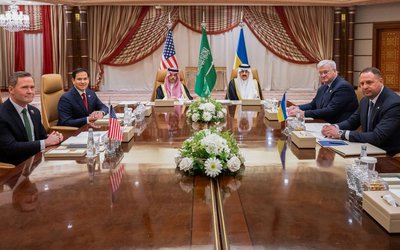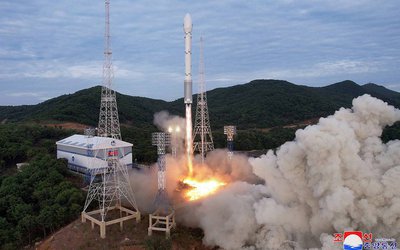
The recent stand-off between India and China over Doklam has fueled speculation in Nepal, mainly over the impact it may have on the country should it escalate into an unanticipated war. After all, the stand-off involves two countries that Nepal, in principle, wants to maintain relations of equal distance or proximity. Officially, India has congratulated Nepal for sincerely pursuing “balanced” relations with its neighbours. In fact, that is how India remembered Maoist leader Pushpa Kamal Dahal when he quit as prime minister in June after holding office for about 10 months.
The prolonged transition process and the visible loss of authority of the state at home and abroad has drastically reduced Kathmandu’s influence, owing to its geo-strategic location, in the neighbourhood. Neither side in the current stand-off seems to have contacted Nepal, officially and explained the issues behind it.
It wasn’t always so. Indira Gandhi had profusely thanked Kirtinidhi Bista, the then-prime minister of Nepal, for sharing his assessment, in response to a query, that as far as he understood, China may not want to get involved in the event of the Indian army joining the Bangladesh liberation war in 1971. L.P. Singh, a renowned bureaucrat, had thanked him on behalf of Mrs Gandhi after Bangladesh’s liberation was secured without China objecting to Indian military activities then, Bista, now 89, and ailing, states in a write-up.
In 1962, when India and China fought a war, Nepal had far less stakes. “We were fearful that China may raise the issue of Gorkha deployment in the war but to save us from diplomatic embarrassment, China did not,” says a senior diplomat who then held a key position in the government. Despite being a neighbour, China, for all practical purposes, was then a distant land for Nepal. However, China’s South Asia policy has undergone a sea change over the years: It now seeks to neutralise and challenge Indian presence. Nepal has already signed trade and transit agreements with China besides preparing for multiple road projects and railway lines connecting the two countries.
Nepal’s growing connectivity with China is largely in rebound to India’s economic blockade of 2015, and the unpopularity it earned for brazenly interfering in Nepal’s internal politics during the Maoist insurgency and after. China seems to have taken note of it in the current stand-off. “India controls Bhutan’s defence and diplomacy, seriously violating Bhutan’s sovereignty and national interests. Indians have migrated in large number to Nepal and Bhutan, interfering with Nepal’s internal affairs. The first challenge for Nepal and Bhutan is to avoid becoming a state of India, like Sikkim,” a prescriptive opinion piece by Xiangchun, published on July 9, in the Global Times, said.
This comes as a setback for Nepali leaders, especially those at the helm of affairs now, who have been asserting that with India-China trade crossing the billion dollar mark, Nepal will benefit from its proximity to two giant economies. Both India and China, through their ambassadors in Kathmandu, were regularly in touch to formulate a common “position” on Nepal to ensure an early end to the transition and political stability. That initiative may suffer if the current stand-off is not settled amicably, or it escalates further.
The immediate task for Nepal is to set its house in order. Conciliatory measures need to be taken to bring all sides as stakeholders in the Constitution even if that will need drastic changes in the document. Damannath Dhungana, civil society leader, peace negotiator and a former speaker of Parliament, recently raised a pertinent question in a public debate. “A sovereign people constitutes a republic, but did Nepal adopt a due process to get there?” he asked. The republic involves popular sovereignty and it can’t be dictated by a handful of leaders, as it happened in Nepal. Many actors now also realise that a political and power vacuum at the top, when there is a conflict in the neighbourhood, will reduce Nepal to a playground of the forces in conflict and their allies. That will not be in the interest of India or China, not to speak of Nepal.
Throughout the peace and transition process that has run in parallel since 2005, China asserted that its interest in Nepal is as high as any other country. But Beijing has constantly conveyed in public and through diplomatic channels that China will do everything to protect Nepal’s “independence and sovereignty”, giving a clear message that the “politics of Nepal has to remain in its sovereign domain”. And as India seems to realise gradually that its policy and conduct in Nepal during the past decade needs a review — the U-turn on its Tarai policy is an indication — it may at least encourage Nepali actors to settle the contentious issues by going to the people wherever necessary.
A stronger and stable Nepal will be able to stop its territory from being used by outside forces inimical to its immediate neighbors and maintain meaningful neutrality like it did in 1962.
Courtesy: Indian Express

Yubaraj Ghimire
Ghimire is a Kathmandu based journalist.
- Manmohan Singh And The Churn In Nepal
- Jan 08, 2025
- Why ‘Revolutionary’ Communist PM Prachanda Went To Temples In India
- Jun 08, 2023
- Why China Is Happy With Nepal’s New PM
- Jan 03, 2023
- Prachanda Sworn In As PM: New Tie-ups In Nepal, Concern In India
- Dec 27, 2022
- Young TV Anchor As Its Face, RSP Rise Takes Nepal By Surprise
- Nov 23, 2022















